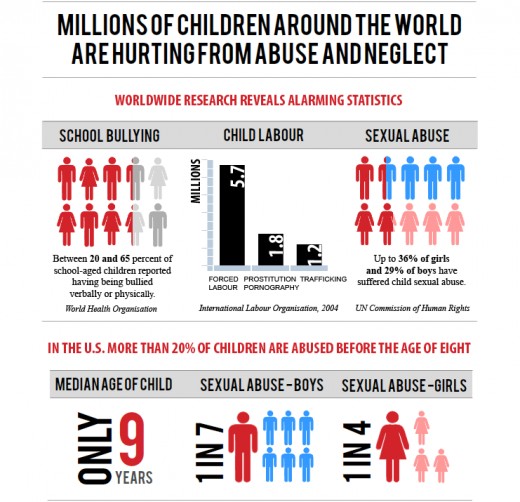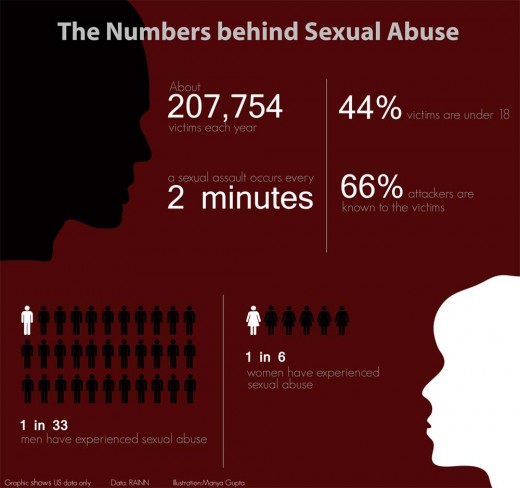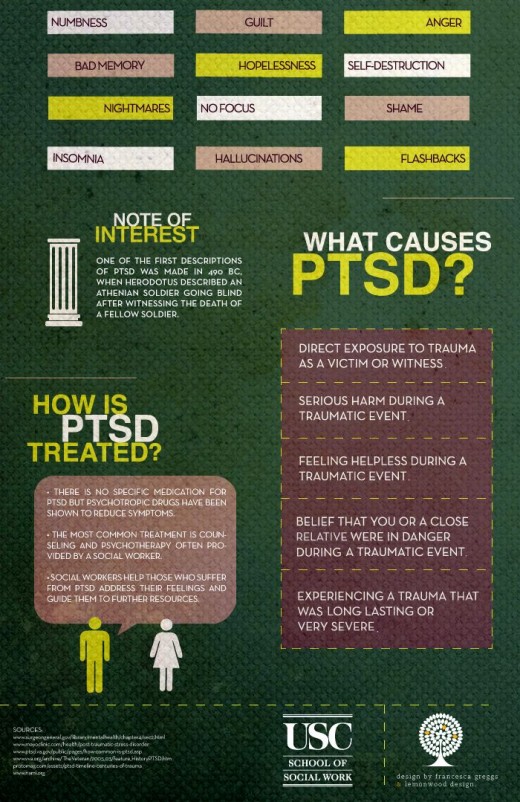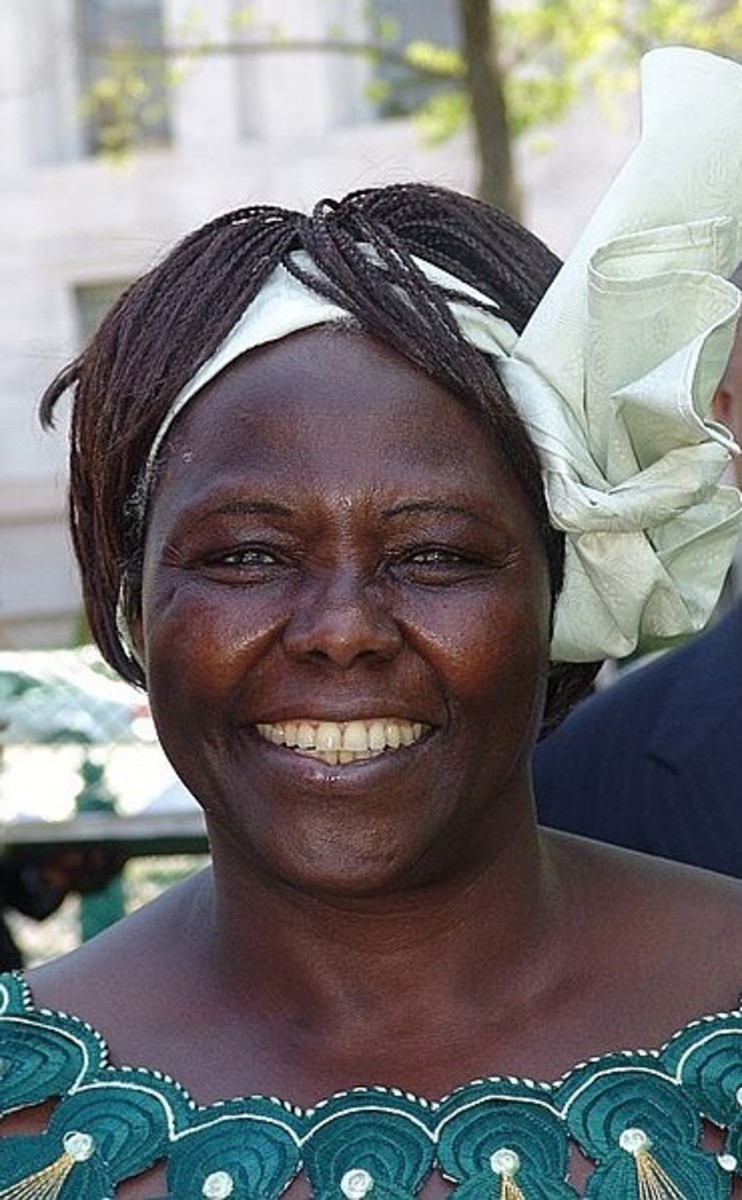"It's Okay to Cry!"
The Perception - Sexual Abuse as a Weakness
Admitting to being sexually abused can be difficult because, despite how empowering it can be to set the past free, there is this voice in the back of the mind that says some people are going to see it as a weakness.
These people see what happened to you as a weakness because you have a past in which you were a victim or, according to their perception, you were the “weaker part of the equation.” They seriously don’t mean anything offensive by this perception because, to them, being the weaker is what turns a person into a victim in the first place. It makes logical sense to those who think in black and white.
Unfortunately, it is true that the force that turns a person into a victim is something stronger than they are physically, but it doesn’t mean that that force is stronger mentally. In fact, when a person is hurt at the hands of another human being, it is the person who is doing the hurting who is weaker in the heart and mind. In the end, it is the victim who has to find strength to get through the abuse and recover from it afterward. The perpetrator usually sails through life in denial or they have some sort of excuse for their actions. There is absolutely no fairness in any of it, but one thing we who have been abused resolve ourselves to at a very young age is that life truly is not fair.
Child Abuse Statistics

Here's Some of My Story
I have endured different forms of abuse from sexual and physical to mental and emotional. Through it all, I have learned a lot about survival and forgiveness, but, of course, I can’t forget the things that I have been through, what they’ve done to me, the roles they have played in who I’ve become, and the daily challenges that they produce. It forced me to put up a wall between me and people as a method of self-preservation.
This wall stayed up for quite some time and, while I struggled with the way childhood sexual abuse and a less than ideal home life screwed up my wiring, I never cried about it. I saw crying as a weakness. That’s until I turned 18 and met a friend who told me to let it all out.
To sit there in my car with a friend I trusted and tell her about everything I had survived was a bit foreign to me. Why did I tell her and not someone else? Well, she was the first and the only to tell me I was hiding something because she could see it in the way I composed myself and could tell just by looking into my eyes that I was struggling with something. To be that exposed and not realize it was surprising and then she said, “It’s okay to cry.”
That was the first step toward having to completely reprogram everything about myself in the most organic way possible. I had no idea how much work it would take to find me and be real. My friend helped me with this and so did her family. I found that I had become numb to the things I should have been sensitive to and sensitive to the things I should have been numb to. When my friend’s family gave me a glimpse into normalcy, a switch flipped and I had a point of reference so I could finally get out of survival mode and start to live.
And then the struggle changed direction…
I met my husband and him and his family strengthened my support system. We married at 22, but I wasn’t over the hump with trying to figure out who I was. He had told me once that when he married me, he hoped he could “fix” me, but it was really up to me to fix me.
It was all about baby steps. My friend and her family were still there, I worked, I had friends, I had dreams, and I was also trying to figure out what boundaries should exist between my family members and me. I largely kept my secret until I was 26 and got involved with a non-profit that focused on using art as a coping mechanism for traumatic life experiences. It was here that I began to speak. I met others just like me. I heard the stories of the different types of abuse they went through and how they prevailed in their lives. It put into perspective how many seemingly normal people have gone through horrific forms of abuse. If you knew everything that has happened to every single abused person you encounter on any given day, it is very possible that you would go into sensory overload and not be able to handle it. It is sad and difficult to understand how a human being can do such horrible things to other human beings, especially children.
It was very empowering for me to verbally tell my story to a room full of people who wanted to hear it. To tell them where I was in my recovery and for them to draw strength from that was overwhelmingly good. To tell them about the friend who had been there for me and who told me it was “okay to cry” caused heads in the room to nod because they too had been at that place where they saw crying as a weakness.
To stand in front of a room and say, “I am a survivor of sexual abuse” rather than “I am a victim of sexual abuse” made me realize I had come full circle. This workshop on using writing as a coping mechanism took place nine years after I sat in the car with my friend and let the wall, and the tears, fall. After achieving being able to speak in public about what happened to me, my friend told me “I am so proud of you.” Anyone in this world could have told me they were proud of me, but it would not have meant as much as it did coming from her.
Sexual abuse: 1 in 6

The Following Year She Ended Our Friendship
I imagine you are probably very confused about this revelation, but I’m not. The end of our friendship caused me to move forward in some ways and backwards in others. I had to move forward without her, which meant she was not there for me to rely on for anything. I had to learn to rely on me, not my husband or anyone else, but me. I had to figure out how to trust myself without needing validation from her.
I moved backwards because I realized the reasons that I gave her to end the friendship had a lot to do with who I was as a result of abuse and I was forced to face those reasons in a brand new way. At one time I didn’t make good decisions and there were times I was just not a good friend, despite how much of herself and her youth she put into the relationship. I am not making an excuse when I say that there was a time when I didn’t know how to properly treat the people who loved me and that bled over into the first years of my friendship with her.
While her reasons had a lot to do with the past, I know there were some elements of the present that triggered her decision to go on with her life without me. I never got angry with her for the heartbreak, but I got angry with myself and my past stung me a bit more. I then had to completely strip myself of everything and evaluate all things I did that were not favorable to her. There were quite a few revelations about what I could and could not control and what I could improve about myself.
Just weeks after the end of the friendship and dealing with the greatest heartache of my adult life, I found out I was pregnant with my first child.
So in the midst of reflection and reinvention, I was gearing up to be a parent. The mix of emotion was rather incredible because I was happy and afraid. I was also heartbroken and trying, once again, to figure out who I was. I knew I needed to figure a lot out before being at the center of a little person’s world and I worked hard on myself so I could be everything I needed to be for that little girl.
I then took the stance that I needed to concentrate on the present and future and less on what was no more. I once again shut out the fact I was abused and put up a type of wall that was more of a boundary in my mind than a barrier between me and other people
But despite how much I tried to shut it out, one of the first things that came to my mind when my daughter was born was “I will do everything I can to keep that from happening to you.”
PTSD? Are You Serious?
Once the newness of parenthood wore off, some of the same old struggles popped back up. The way I reacted to things and even the goofy thought processes returned because, let’s face it, some of it is pretty permanent when it is ingrained into your personality.
But regardless of the struggles that existed, the days of talking about abuse were still over. I worked hard in my business, I was a mom, and I was trying to live my life.
It was when my second child was born that something within me broke. This time, I finally sought some help from someone other than my family doctor who wanted to throw anti-depressant and anxiety medications down my throat. The diagnosis was PTSD. I am very high functioning to the point that outwardly I am able to behave normally despite what my brain wants to do. I have pretty good control most of the time, but the struggle is still there even if people can’t see it. I can be a bit quirky at times and, apparently, some people think it’s cute or funny. That’s perfectly fine with me, but the diagnosis was another thing I didn’t want anyone to know because this is a diagnosis that can make people see me as weak or incompetent when it comes to handling anything. Any time you hear of PTSD in the news, it is because someone has done something horrible. Of course you are not going to hear of the nurse, doctor, lawyer, or local business owner who has been diagnosed with PTSD because of a traumatic event that happened in their past.
When a client found an interview online that a survivor website had done with me years before, he brought it up and I felt ashamed of it. I didn’t like a client vetting me on the Internet and finding out that I had been sexually abused.
What Causes PTSD?

A New Setback Leads to Victory
Professionally, I don’t want anyone to see me as incompetent because I was abused. I am far from incompetent. When I did the interview, I didn’t care who knew because I wanted to inspire and give hope to people that you can change the result and make positive use of the consequences. I even wrote a book about it! When it comes to my clients or potential clients telling me they found something of mine on Google, I know they have seen that interview because it is on the front page of search results under my name. I have wondered about how much business I’ve lost because of that article about me. How many people have doubted my abilities because they think all people who have been abused are “messed up?”
Just recently, with my more prominent standing within my community, I once again worried about what that interview could place in the minds of people.
But you know what? I can’t let the paranoia win.
Every single time I worry about what someone is going to think about a past I had absolutely no control over, I take a step backward. I COULD NOT CONTROL WHAT HAPPENED TO ME. All of the reprogramming I’ve had to do throughout my life was because someone else damaged me. I didn’t damage me. I never asked for what happened to me and I wasn’t going to be able to stop it. The guilt I once had is no longer there. Do I feel anger? Of course I do, but I deal with my anger in a much healthier way than I did as an adolescent.
I feel rather ridiculous that, considering my track record within my field, I would be seen as emotionally incompetent to do my job. I mean, I take risks that can yield the best results, I don’t let people run over me, I am a shark at a negotiating table, I commit myself to all of my clients, I can handle social situations just fine, and I maintain a balance within my life that some may find almost impossible.
Have I always been this way?
No, I haven’t. I used to be quiet, a doormat, socially awkward unless in an athletic competition, sweating bullets because I was afraid a teacher would call on me, confused, unorganized, and my only ambition was to get through the day so I could make it to the next and become one step closer to getting out of my bad home situation.
Now I’m a wife, mother of three, business owner, and the chairwoman of a civic organization. In no way would I have seen myself doing any of this when I sat in that car with my friend seventeen years ago and was told “it’s okay to cry.”
Upon reflection of this very long journey, I see how far I have come and I hope that for anyone who knows anything about the past I’ve lived through, they can look at me and tell that I am someone who has prevailed on this very narrow path. Is it the end of the road? No. An unfortunate fact is that the battle is never over for the abused. It is a life sentence that you learn how to cope with over time to the point that you can live your life normally with footnotes in your story that other people don’t have. And just like a footnote, your past is a fact that is part of your story. The difference is that it doesn’t necessarily have to define who you are now.



